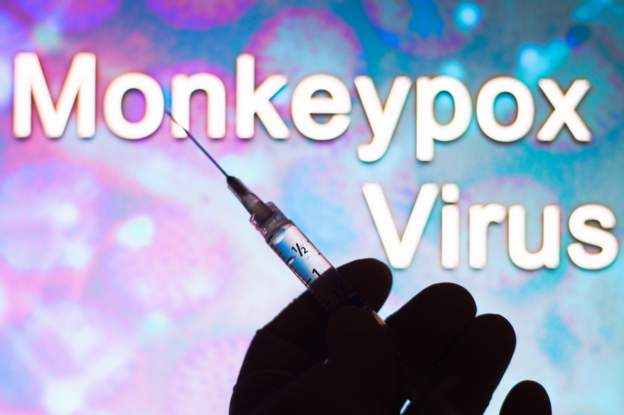The Upper East Regional Health Promotion Officer, Rexford King James, has asked all and sundry not to panic over the monkeypox virus.
This comes after one person was confirmed dead by health authorities in the Upper East Region after testing positive for monkeypox.
According to the Regional Health Directorate, the person who was confirmed as having been infected was seen on the 22nd July, 2022 with a history of fever and skin rash. The person died on the 26th of July 2022.
The death has created an uneasy calm in the area, with people expressing fear due to a lack of adequate information about the virus.
Speaking in an interview on Joy FM’s Midday News on Monday in reaction, Mr Rexford King James said that while it is natural for every human being to be concerned about the reported case, he urged the public to remain calm.
This, according to him, is because “in every health situation, when you panic, you make mistakes but when you are sober, you do not make mistakes.”
“So our message to the general public together with our health workers is that we need to calm nerves down because this is not the first time we are confronted with such,” he added.
According to him, when such incidents occur, it is best to mobilize the community through risk communication so that they can make an informed decision to protect themselves.
Meanwhile, the following measures have been put in place in the Upper East Region to contain the further spread of the disease;
- All contacts to the confirmed case are being followed up and monitored daily.
- The Ghana Health Service also says it has trained and sensitized health staff on the monkeypox disease.
- They’ve also sent outbreak alerts to all districts and health facilities.
- Surveillance of monkeypox disease at all health facilities and communities has been stepped up.
- Intensified awareness creation and social mobilisation on monkeypox disease.
- Activated all Public Health Emergency Management Committees (PHEMC).
- Emergency Rapid Response Teams and Case Management Teams all holding/isolation centres have been activated and are ready to manage cases.
All you need to know about monkeypox
Monkeypox is endemic in countries such as Benin, Cameroon, the Central African Republic, the Democratic Republic of the Congo, Gabon, Ghana, Ivory Coast, Liberia, Nigeria, the Republic of the Congo, Sierra Leone, and South Sudan.
Transmission of virus
Transmission occurs primarily via respiratory droplet particles usually requiring prolonged face-to-face contact, which puts household members of active cases at greater risk of infection.
Transmission can also occur via inoculation or the placenta (congenital monkeypox). There is no evidence, to date, that person-to-person transmission alone can sustain monkeypox infections in the human population.
Secondary, or human-to-human, transmission can result from close contact with infected respiratory tract secretions, skin lesions (open wounds/injuries) of an infected person or objects recently contaminated by patient fluids or lesion materials.
Symptoms
The infection can be divided into two periods:
The invasion period (0-5 days) characterised by fever, intense headache, lymphadenopathy (swelling of the lymph node), back pain, myalgia (muscle ache) and an intense asthenia (lack of energy);
The skin eruption period (within 1-3 days after the appearance of fever) where the various stages of the rash appears, often beginning on the face and then spreading elsewhere on the body.
The face (in 95% of cases), and palms of the hands and soles of the feet (75%) are most affected.
Treatment/Vaccine
There are no specific treatments or vaccines available for monkeypox infection, but outbreaks can be controlled.
Vaccination against smallpox has been proven to be 85% effective in preventing monkeypox in the past but the vaccine is no longer available to the general public after it was discontinued following global smallpox eradication.
Prevention
In the absence of specific treatment or vaccine, the only way to reduce infection in people is by raising awareness of the risk factors and educating people about the measures they can take to reduce exposure to the virus.
Regular hand washing should be carried out after caring for or visiting sick people.
Reducing the risk of animal-to-human transmission. Efforts to prevent transmission in endemic regions should focus on thoroughly cooking all animal products (blood, meat) before eating.
Public health educational messages via the media – broadcast, electronic and social – is highly advised.
Healthcare workers and those treating or exposed to patients with monkeypox or their samples should consider being immunized against smallpox via their national health authorities.
Latest Stories
-
Kelvin Gyimah: Dr Bawumia’s only sin (Article)
33 seconds -
Over 500,000 Ghanaians to benefit from National Apprenticeship Programme
21 minutes -
FA bars transgender women from women’s football
35 minutes -
Safeguard judicial independence, don’t politicise chief justice removal – AJIF warns
47 minutes -
Bawumia visits injured KNUST student at Komfo Anokye Hospital
1 hour -
NPP National Chairman takes temporary break from nationwide ‘Thank You Tour’
1 hour -
Photos: National Apprenticeship Programme launch
1 hour -
Charlotte Osei, Totobi Quakyi and 7 others appointed to Ghana Gas Board
1 hour -
Mahama pledges decent jobs, economic stability as Ghana marks Workers’ Day
1 hour -
From headlines to high finance: Matilda Asante-Asiedu named 2nd deputy governor of Bank of Ghana
1 hour -
Man jailed seven years for defiling minor in Wa
2 hours -
Nigerian artiste Shaiyboy and top producer SB arrive in Ghana
2 hours -
Philadelphia Eagles and IMOTEP embark on third community project in Volta Region
2 hours -
Gacem, Eid Saud, and Akatsi South MP donate building materials to rainstorm victims in Akatsi
2 hours -
Kwame Nkrumah Circle: Accra’s crime hub left to grow worse over time
2 hours

